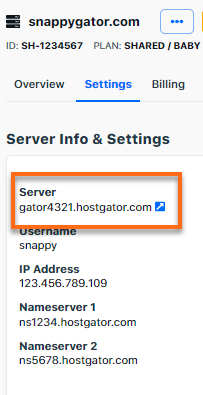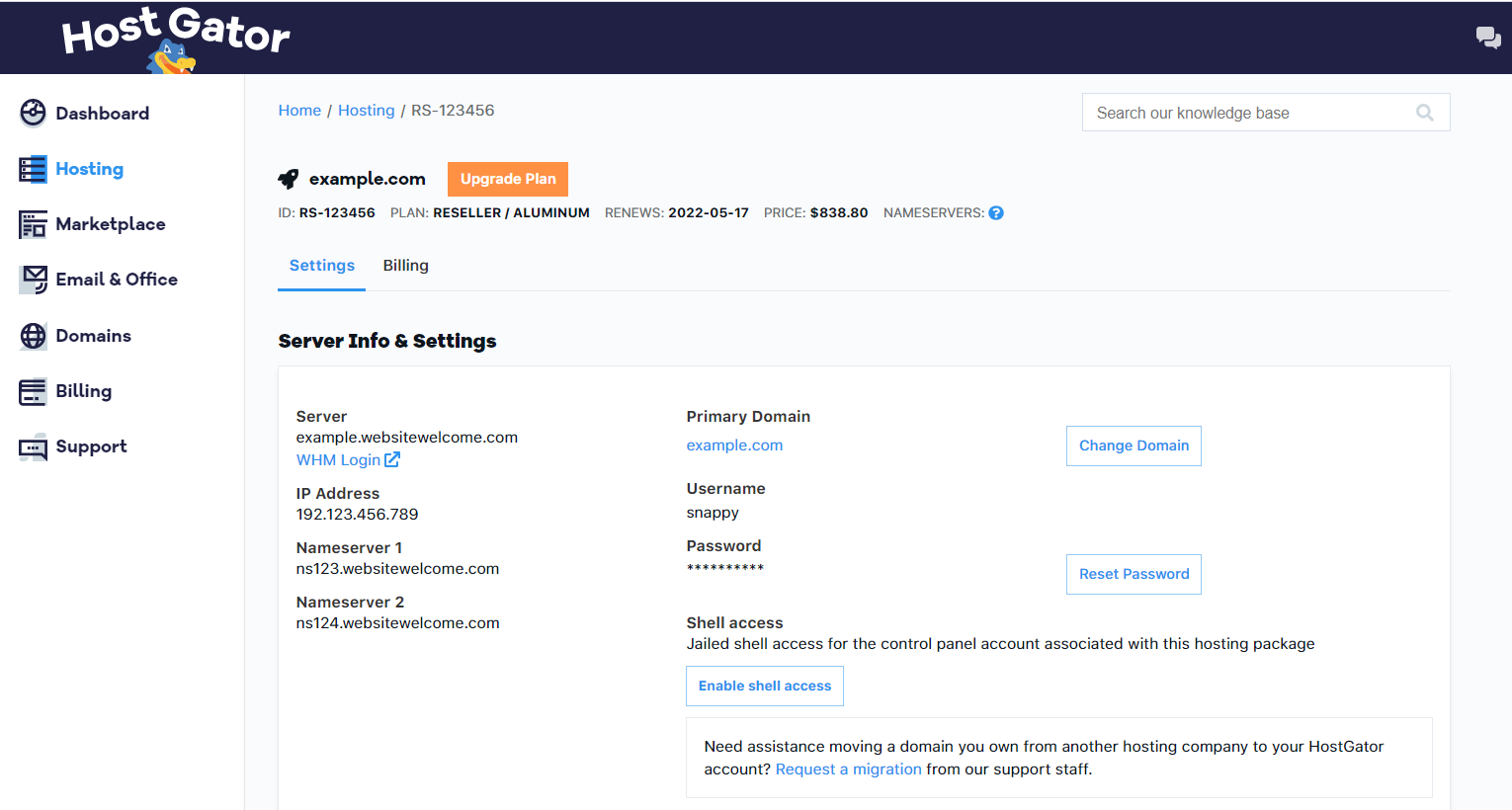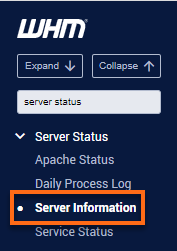POP3 or IMAP with SSL
This article discusses how to set up your email's incoming and outgoing mail servers with SSL.
For a secure email connection using SSL, you must replace your normal mail.domain.com URL with the hostname of the server. The hostname should be used for the incoming/outgoing certificate domain.
Finding Your Server's Secure Hostname
Hostgator uses wildcard SSL certificates, which cover the .hostgator.com on Shared and the .websitewelcome.com on Reseller accounts, allowing you to use your regular server name with secure services without errors at this time.
Shared and Cloud Hosting Accounts
For the Shared and Cloud hosting packages, you can see your server hostname in your Welcome email, Customer Portal and cPanel.
- Welcome Email — The server hostname will be provided in your Welcome email when you purchase hosting. This is the Your Control Panel address followed by the port :2083.
Example: gator4321.hostgator.com
- Customer Portal — The server hostname is found in your Customer Portal's Settings section.
How to Find the Server Hostname in your Customer Portal
- Log in to your Customer Portal.
- Select Hosting from the left-hand menu.
- Locate your hosting package, then click its Manage link.
- Under the selected hosting package page, click the Settings tab.
- The server hostname is found just below the Server Info & Settings heading.
Example: gator4321.hostgator.com

Reseller Hosting Accounts
For the Reseller hosting packages, you can see your server hostname in your Welcome email, Customer Portal and WHM.
- Welcome Email — The server hostname will be provided in your Welcome email when you purchase hosting. This is the Your Control Panel address followed by the port :2087.
Example: reseller.websitewelcome.com
- Customer Portal — The server hostname is found in your Customer Portal's Settings section.
How to Find the Server Hostname in your Customer Portal
- Log in to your Customer Portal.
- Select Hosting from the left-hand menu.
- Locate your reseller hosting package, then click its Manage link.
- Under the selected hosting package page, click the Settings tab.
- The server hostname is found just below the Server Info & Settings heading.
Example: reseller.websitewelcome.com
- WHM — The server hostname is found in your WHM's Server Status section.
How to Find the Server Hostname in your WHM
- Log in to WHM.
- Using the search bar on the top right, type in server status.
- Under the Server Status menu, click Server Information.

- On the right side, your server hostname is displayed under the System Information box.

You can use your reseller server name to establish your secure connection using the format servername.websitewelcome.com. Thus in the example shown, the server name is a reseller, and the secure hostname is reseller.websitewelcome.com.
VPS/Dedicated Hosting Accounts
In order to utilize the SSL settings on a VPS or Dedicated Server, an SSL certificate is required. If you have an SSL certificate configured, you can use the hostname assigned to your SSL or your dedicated IP address as your secure server name. Otherwise, you would need to sign up for an SSL here.
Secure Ports
Incoming Ports
- Secure POP3 - port 995
- Secure IMAP - port 993
Outgoing Ports
The outgoing mail is always SMTP, whether using IMAP or POP.
- Secure SMTP - port 465
Note: Be sure that your computer's firewall is not blocking these ports, as this can cause the ports to still not work properly. It is not always necessary to use your Internet Service Provider's settings, but if you cannot send from port 26 or 465, then we suggest you contact your ISP and ask for their outgoing mail server name.
Generic Email Settings
- Under Incoming mail server, enter the following:
- Host Name: mail.example.com or server hostname
- User Name: Enter your complete email address, [email protected]
- Password: Your email account password
- Under Outgoing Mail Server, you're going to enter the same information you used for the Incoming Mail Server settings.
- Host Name: mail.example.com or server hostname
- User Name: Enter your complete email address, [email protected]
- Password: Your email account password
Note: Replace the example.com with your domain name.
SSL Warning
When not using the secure connection settings for email, you may sometimes receive notices about the SSL certificate as these certificates are renewed or reissued. The best method to resolve this issue is to update the email settings with the secure server hostname provided above.
If you would prefer not to make this change, you may suppress warnings about the validity of your connection's SSL certificate by either adding an exception or trusting the certificate.
Additional Resources
The following articles can provide further guidance in accepting or trusting your SSL certificate warning and are for reference only. Please note that Hostgator cannot offer direct support for the information provided below.